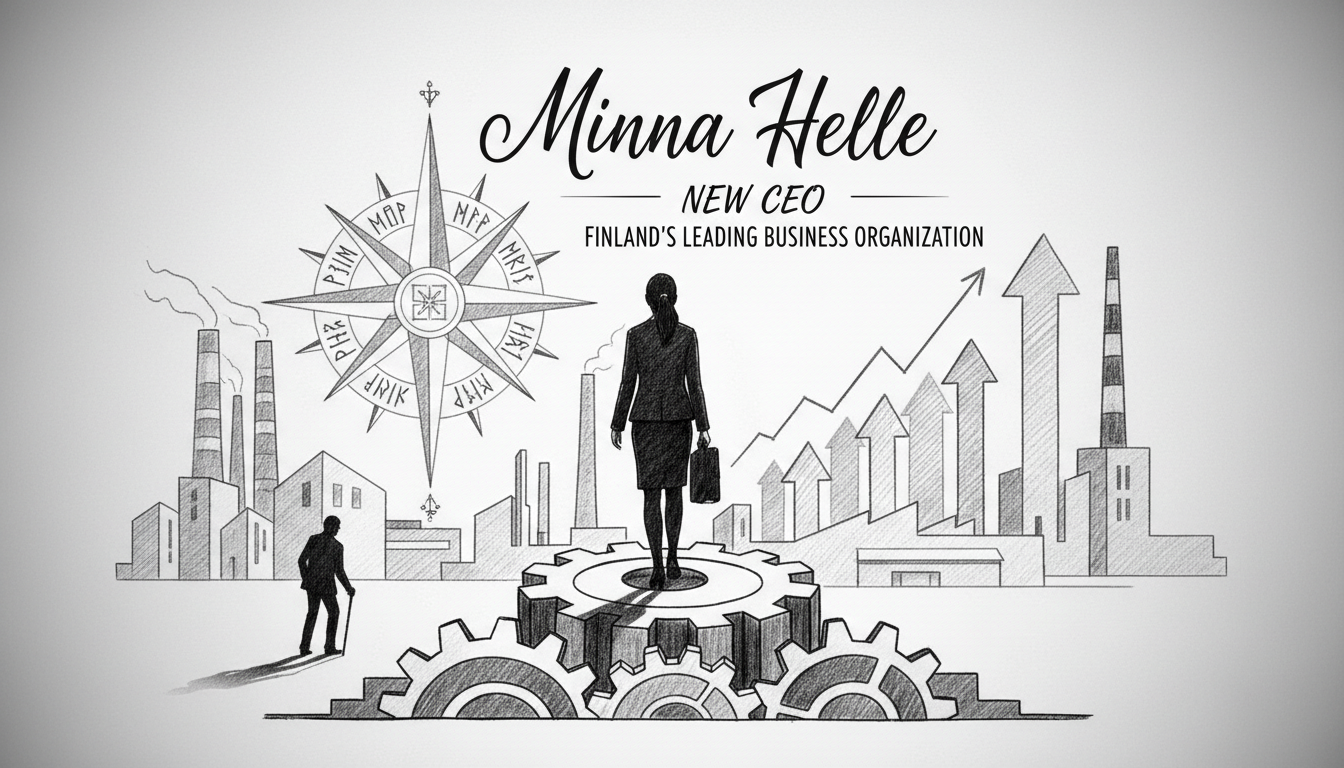Finland's Confederation of Industries has selected Minna Helle as its next chief executive officer. The board made the announcement following careful consideration of candidates. Helle brings extensive experience from her current role leading Technology Industries of Finland.
Helle will transition from her position at Technology Industries of Finland, where she has served as CEO since November. She begins her new leadership role on April 1. The current CEO Jyri Häkämies will retire in May after a distinguished tenure.
This appointment marks a significant moment for Finnish business leadership. Helle becomes one of the most influential voices shaping Finland's economic policy. Her background includes serving as national conciliator and holding leadership positions at major worker organizations and pension providers.
Helle emphasized the importance of business success for national prosperity in her announcement. She stated that successful companies form the foundation of Finland's welfare system. The Confederation of Industries plays a crucial role as business spokesperson and promoter of sustainable growth.
The organization accelerates renewal and advocates for entrepreneurship and market economy principles. This leadership change comes during a challenging period for Finnish exports and industrial competitiveness.
Helle's extensive background in labor relations and pension systems provides unique qualifications for this role. She has navigated complex negotiations between employers and workers throughout her career. This experience will prove valuable as Finland addresses ongoing economic challenges.
The Confederation of Industries represents Finland's most important export sectors. These include technology, forestry, and metal industries. The organization influences policy decisions affecting business competitiveness and employment.
International readers should understand this appointment's significance within Nordic corporate governance structures. Finnish business organizations maintain strong relationships with government and labor unions. This tripartite model has traditionally supported Finland's economic stability.
Helle's transition from worker organization leadership to employer representation demonstrates her broad understanding of Finnish economic dynamics. Her appointment suggests continuity in the organization's approach to policy advocacy.
The timing coincides with ongoing debates about Finland's industrial strategy and green transition. How will Helle balance traditional industry interests with emerging sustainable business models? This remains a key question for observers of Finnish economic policy.
What does this leadership change mean for international companies operating in Finland? The new CEO will likely maintain the organization's pro-business stance while adapting to global economic shifts. Her background suggests pragmatic approaches to labor market development and competitiveness challenges.

